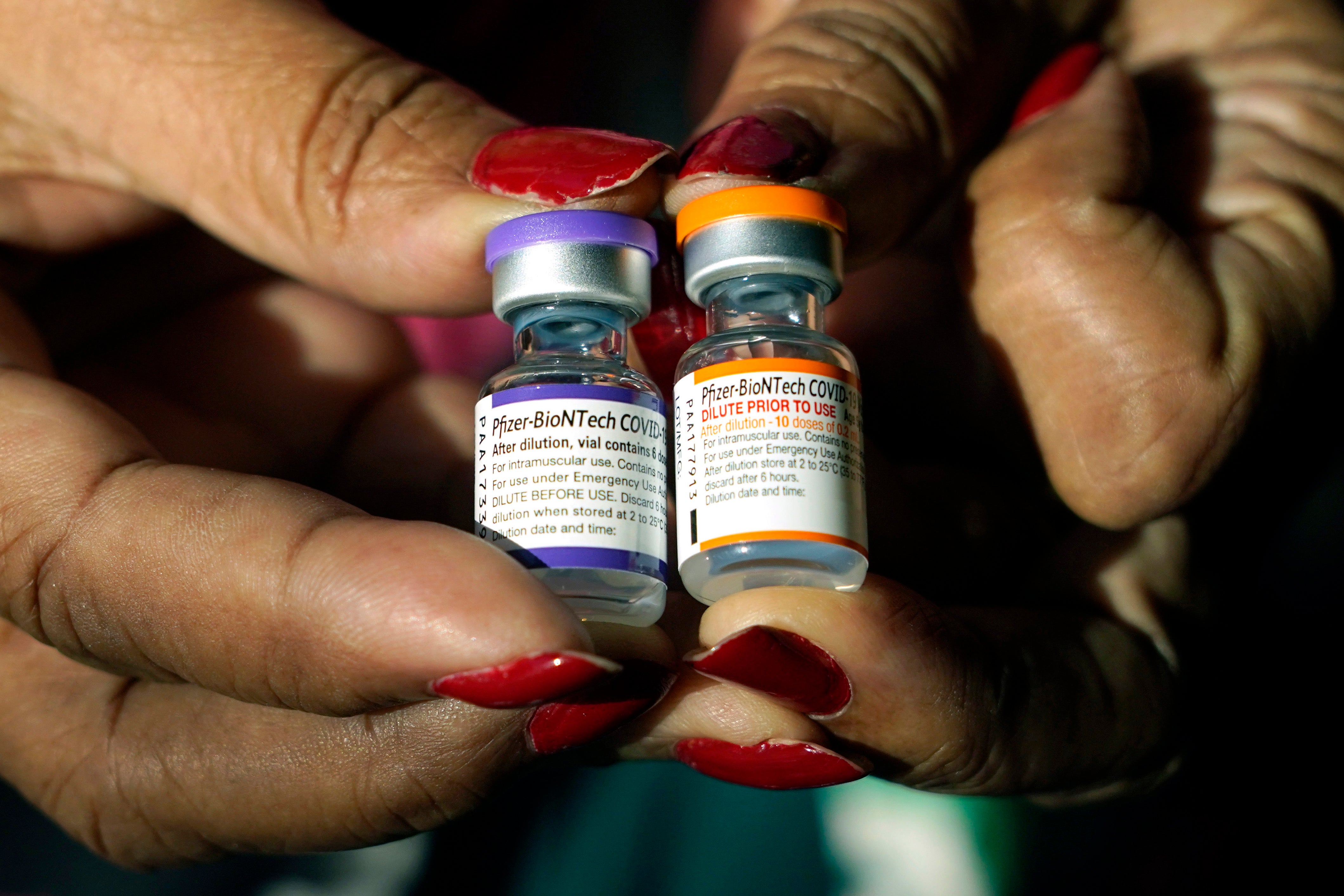CDC advisers urge Pfizer booster for children ages 5 to 11
U.S. health advisers are urging a booster dose of Pfizer's COVID-19 vaccine for kids ages 5 to 11

Kids ages 5 to 11 should get a booster dose of Pfizer’s COVID-19 vaccine, advisers to the U.S. government said Thursday.
If the Centers for Disease Control and Prevention agrees, as expected, it would open a third COVID-19 shot to healthy elementary-age kids -- just like it is already recommended for everybody 12 and older.
The hope is that an extra shot will shore up protection for kids ages 5 to 11 as infections once again are on the rise.
Earlier this week, the Food and Drug Administration authorized Pfizer's kid-sized booster, to be offered at least five months after the youngsters' last shot.
But the CDC takes the next step of recommending who actually needs vaccinations. Its advisers debated if all otherwise healthy 5- to 11-year-olds need an extra dose, especially since so many children were infected during the huge winter surge of the omicron variant.
Ultimately, the committee pointed to growing evidence from older kids and adults that two primary vaccinations plus a booster are providing the best protection against the newest coronavirus variants.
“This always perhaps should have been a three-dose vaccine,” said Dr. Grace Lee of Stanford University, who chairs the CDC’s advisory panel.
The booster question isn't the hottest vaccine topic: Parents still are anxiously awaiting a chance to vaccinate even younger tots, those under 5 -- the only group not yet eligible in the U.S. Both Pfizer and rival Moderna hope to offer vaccines for those youngest children soon; the FDA is expected to evaluate data from one or both companies sometime next month.
But for the 5- to 11-year-olds, it’s not clear how much booster demand there will be. Only about 30% of that age group have had the initial two Pfizer doses since vaccinations opened to them in November.
CDC adviser Dr. Helen Keipp Talbot of Vanderbilt University said health authorities must put more effort into getting more of those youngsters their initial shots
“That needs to be a priority,” she said.
Pfizer and its partner BioNTech make the only COVID-19 vaccine available for children of any age in the U.S. Those ages 5 to 11 receive a kid-sized dose that’s one-third the amount given to everyone 12 and older.
In a small study, Pfizer found a booster revved up those kids’ levels of virus-fighting antibodies -- including those able to fight the super-contagious omicron variant -- the same kind of jump adults get from an extra shot.
Vaccines may not always prevent milder infections -- and omicron especially proved able to slip past their defenses. But CDC cited data during the omicron surge that showed unvaccinated 5- to 11-year-olds had twice the rate of hospitalization as youngsters who got their first two doses.
Health authorities say for all ages, the vaccines are still offering strong protection against COVID-19's worst outcomes, especially after a third dose.
But some especially high-risk people, including those 50 and older, have been offered the choice of a second booster, or fourth shot. And still to be decided is whether everyone will need additional shots in the fall, possibly reformulated to offer better protection against newer coronavirus variants.
___
The Associated Press Health and Science Department receives support from the Howard Hughes Medical Institute’s Department of Science Education. The AP is solely responsible for all content.
Bookmark popover
Removed from bookmarks